Pumpkin rice gruel
Pumpkin, millet and wolfberry
practice
1. cut Pumpkin Peel into thin slices and rinse with millet. Put some water in the pot, put water into pumpkin millet and boil it in a big heat.
2. turn a small fire, slowly boil to the millet blossom, pumpkin cooking.
3. add Lycium barbarum, mix well and cook for a few minutes.
Ingredients: Pumpkin, millet, rice and clear water.
First, wash the rice and millet clean and keep them; then peel the pumpkin and cut them into pieces.
Add the rice and millet into the pot, then add the right amount of water, then boil it and put it into the pumpkin block.
Turn to a small fire and continue cooking. Wait until the pumpkin is ripe and put into a bowl. Mash the boiled pumpkin with a spoon and eat it.
Pumpkin has the effect of clearing heat and detoxification, and the dietary fiber is very rich. Pumpkin millet porridge can provide a good sense of satiety, and the calorie is very low. It is a good food for stomach and intestines.
1. The millet is soaked in a little water for one hour. It is easy to boil sticky rice. If there is no time, it can be soaked without soaking, but the boiling time should be prolonged appropriately.
2. If millet is wash-free, it is the best. If not, just rinse it once with water. Repeated washing will lose nutrients.
3. do not like sweet without icing sugar.
4. Add water as you like, like sticky less water, like clear more, but it is best to boil rice grains and water evenly distributed;
5. Pumpkins can also be cut directly into slices or pieces of pumpkin and boiled in porridge. If so, they should be cooked with millet .
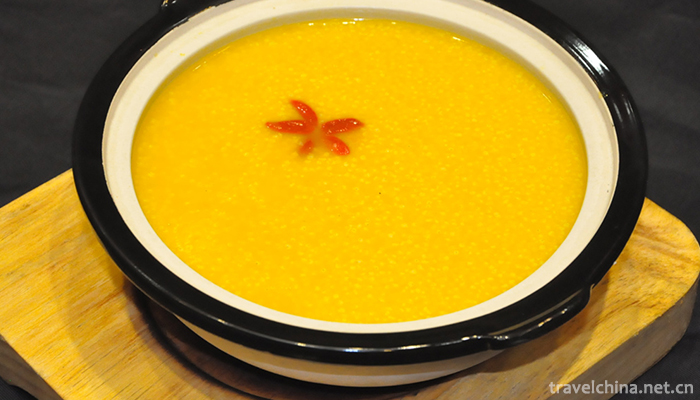
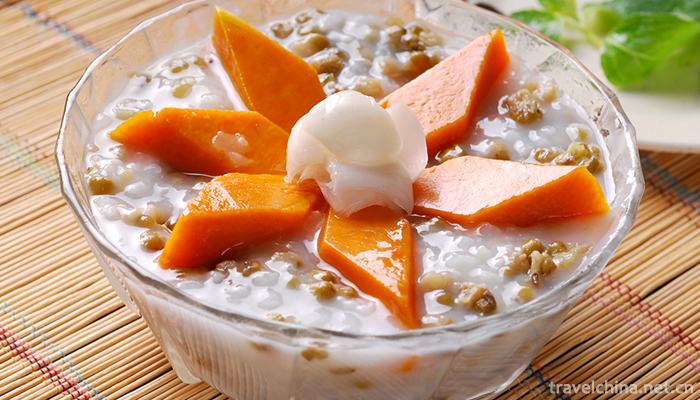
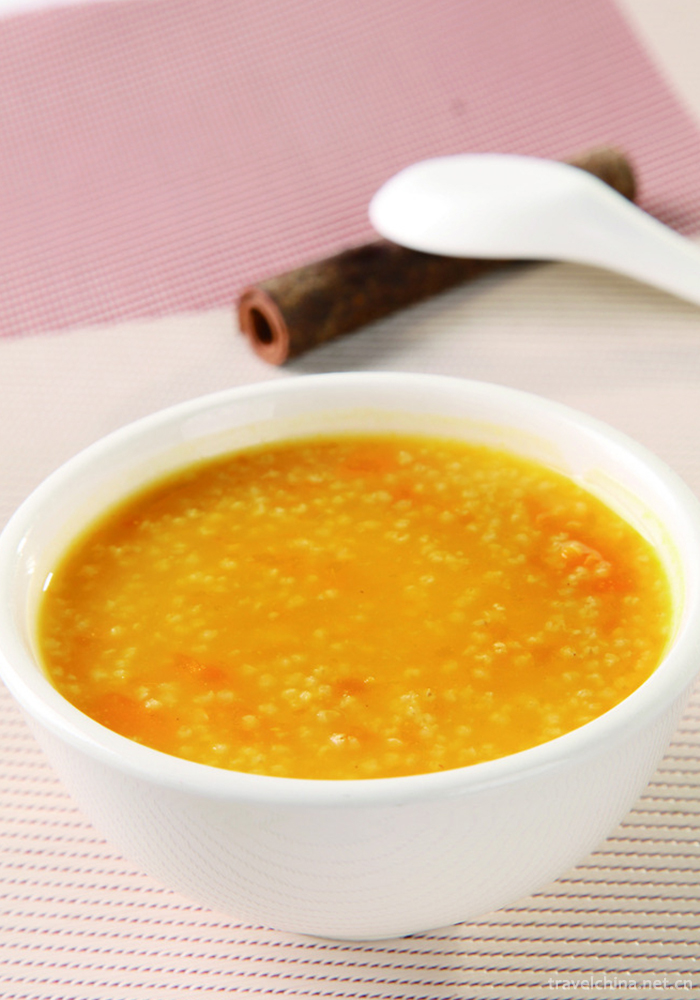
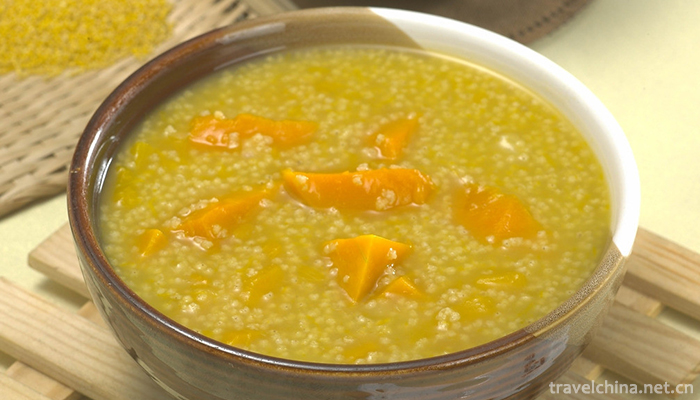

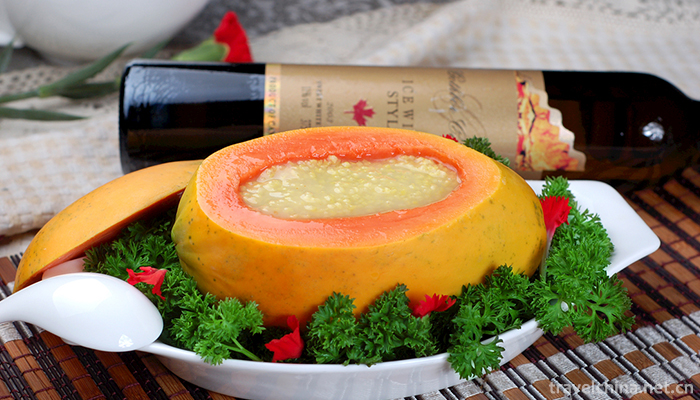
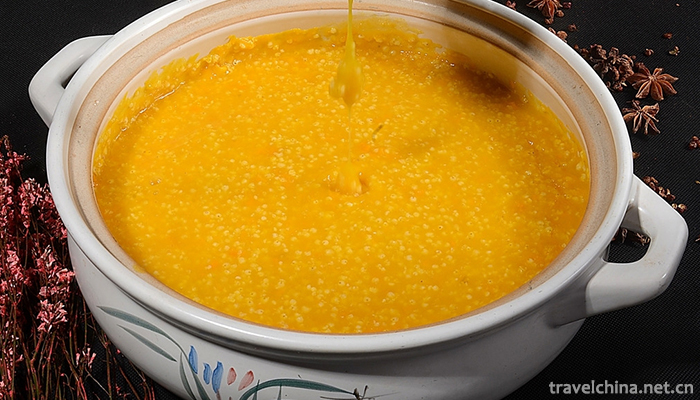
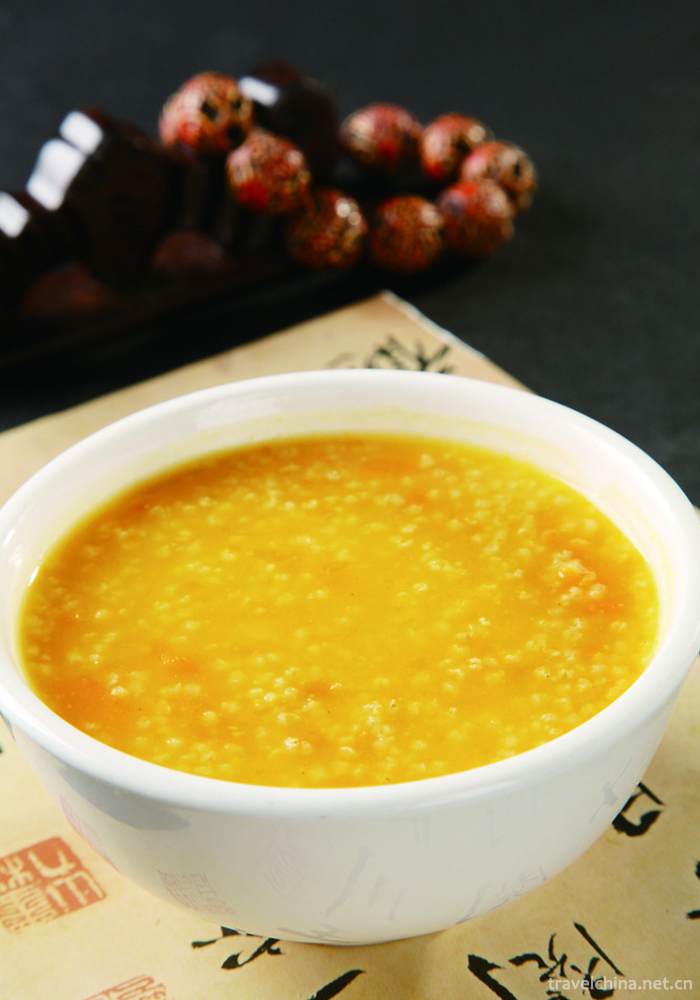
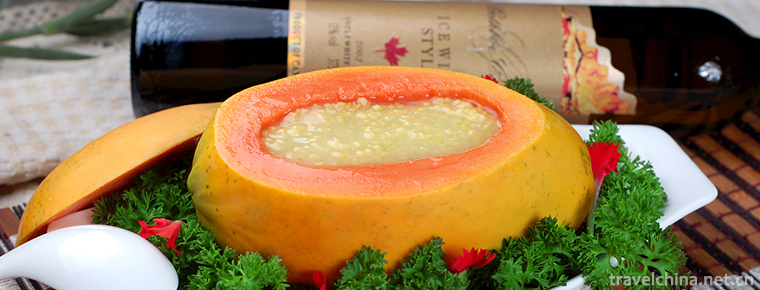
-
1.Dunhua Liudingshan Cultural Tourist Area
Dunhua Liudingshan Cultural Tourist Area is located in the South Bank of Mudanjiang River, 3 kilometers south suburb of Dunhua City
Time 2018-12-05 -
2.Yunlong Lake
Located in the southwest of Xuzhou City, Jiangsu Province, Yunlong Lake is the main scenic spot of Yunlong Lake Scenic Area in Xuzhou, formerly known as "Stone Dog Lake"
Time 2018-12-06 -
3.Shi Bao Village
Shibaozhai, a national AAAA-level tourist attraction, a national key cultural relic protection unit, is one of the 30 best new tourist landscapes in the Three Gorges of the Yangtze River,
Time 2019-02-08 -
4.Boiled yellow croaker
Boiled yellow croaker is a traditional dish with Shandong characteristics. It belongs to Shandong cuisine. Its main ingredient is yellow croaker. It is a dish with soft meat, rotten but not spoiled, a
Time 2019-03-24 -
5.Traditional skills
Chinese traditional folk art is a craft inherited from Chinese folk, such as paper-cut is one of the most popular traditional folk decorative arts in China, with a long history
Time 2019-04-19 -
6.Jiashan Tian Ge
Jiashan Tiange is a local folk song in Zhejiang Province. It belongs to a variety of Wuge songs. It is a unique form of ballad in Zhejiang Province. It is a song that workers sought comfort and expres
Time 2019-05-05 -
7.Leather Paper Making Skills
Leather paper making is an ancient Chinese traditional handicraft. Paper making is one of the four great inventions in ancient China. Bamboo paper and leather paper made from bamboo and tussah bark ar
Time 2019-06-09 -
8.Salar Costume
The traditional dresses of the Salar nationality are bright and bright in color and full of national characteristics. Salar costumes have two characteristics, namely (1) Islamic color of costumes; (2)
Time 2019-06-11 -
9.Processing Technology of Traditional Chinese Medicine
Processing technology of traditional Chinese medicine, one of the means of preparation or extraction of traditional Chinese medicine, is declared by the Chinese Academy of Traditional Chinese Medicine
Time 2019-08-03 -
10.Hydrology in Luzhou
There are many large, medium and small rivers in Luzhou, but the runoff of small streams is short. The rivers in the territory belong to the Yangtze River system, with the Yangtze River as the main trunk, distributed in a tree shape, and flow into the Yangtze River from south to North
Time 2020-12-14 -
11.Main scenic spots in Luzhou
Located in Luzhou city. It was built in the 18th year of Shaoxing in the Southern Song Dynasty (1148), in the year of Hongzhi of Ming Dynasty (1488-1505), in the 14th year of Guangxu of Qing Dynasty (1884) and in 1985, and has been well preserved.
Time 2020-12-14 -
12.Guangan highway
Guang'an is the transportation hub of Northeast Sichuan Province. The national highway 210, 212, 305 and 318, provincial roads 203, 304 and 18, and county, township and village roads crisscross each other, and the highway network exte
Time 2020-12-19